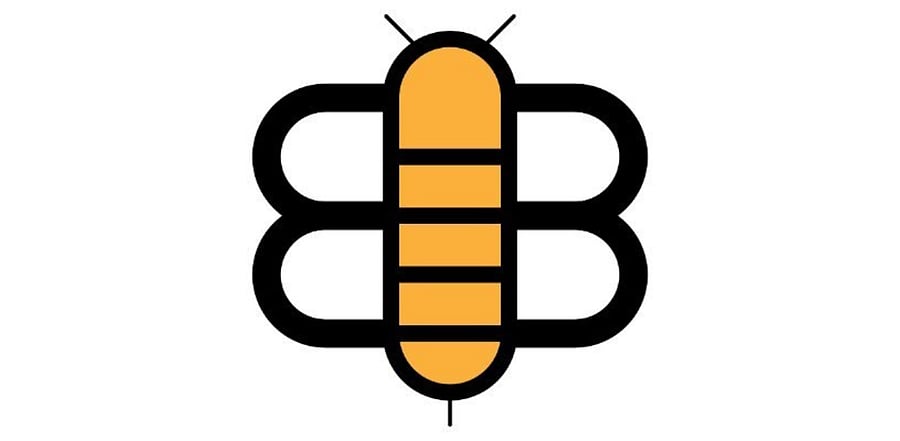
On Friday, President Donald Trump tweeted a story from an unusual source: The Babylon Bee, a right-wing satire site that is often compared to a conservative version of The Onion.
“Twitter Shuts Down Entire Network to Slow Spread of Negative Biden News,” read the story’s headline. The story was a joke, but it was unclear whether Trump knew that when he shared the link, with the comment “Wow, this has never been done in history.”
Emma Goldberg, a reporter for The New York Times, recently profiled The Babylon Bee, and wrote about how the site’s satire is frequently mistaken for reality.
I chatted with Goldberg about her article, The Babylon Bee’s habit of skirting the line between misinformation and satire, and how it capitalizes on its audience’s confusion.
Q: So, Emma, you wrote about The Babylon Bee, a satirical news site I’ve been fascinated by for a long time. It’s basically the right-wing version of The Onion, right?
A: Exactly. And what fascinated me in reporting this is that I’ve followed The Onion for a long time — but The Babylon Bee currently gets more traffic than them, at least according to their internal numbers.
Q: That’s so interesting! Why do you think The Bee is doing so well?
A: Well, they certainly don’t pull any punches. Their mantra seems to be that everything is fair game: the left, the right, Trump. And in general, on the right, swiping at Trump is considered a red line, but The Bee doesn’t seem to care.
They’ve also tapped into a large audience of people who aren’t hard-line Trumpers, but are much more pissed off by the outrage that Trump generates on the left.
Q: Right, sort of the anti-anti-Trump crowd. And the people who run the site, are they pro-Trump? What do they see themselves as doing, within the larger conservative movement?
A: They are ambivalent about their views on Trump, but they also proudly identify as Christian conservatives. But I noticed that their early coverage of Trump, back in 2016, was much more vitriolic than today’s. They called him a psychopath, or a megalomaniac. Now they’re more bemused by him and the ghoulish ways he’s described on the left.
But I think their willingness to swipe at him, even gently, gets at an important element for successful humour. What media scholar Brian Rosenwald told me is that the humour always has to come before the politics.
Q: So this is a blog about distortions and misinformation, and one thing I’ve noticed recently is that a lot of The Babylon Bee’s most successful articles in terms of online engagement are the ones that are … less obviously satirical.
A: Totally. And that’s landed them in some hot water.
Q: Like, one from the other day was called “NBA Players Wear Special Lace Collars to Honor Ruth Bader Ginsburg.”
A: People were sharing that thinking it was real.
Q: Yes!
A: They certainly play to that for virality — their best content is right on the reality-satire line.
Q: I’m wondering the extent to which being a satire site — which makes them exempt from Facebook’s fact-checking program — has allowed them to traffic in misinformation under the guise of comedy. Do you think that’s a deliberate strategy?
A: Well, that’s a great question, because it’s been a big source of controversy for them. They’ve had a few articles that were fact-checked by Snopes and rated “false.” Which The Bee’s writers and editors claim prompted Facebook to threaten them with being demonetized. The Bee’s founder, Adam Ford, has claimed that Snopes fact-checked them in ways that were “egregious,” with standards that wouldn’t be applied to, for example, The Onion.
The Bee feels that they’re being targeted unfairly. But Snopes has poked at the fact that their pieces can sometimes be easily mistaken for real news — which might fall on them, not their readers.
Q: Politics aside, it sort of speaks to the impossible nature of being a satirical site in the age of the mega-platform. Because on one hand, you’ve got to write things that are so obviously made up that they can’t reasonably be mistaken for real news, but also close enough to the truth to be funny.
A: One hundred per cent. Truth is funnier than fiction these days.
Q: One thing I’ve wondered is what the whole “owning the libs” media industrial complex will do if Trump loses in November. Do you get the sense that The Bee cares who wins the election, from the standpoint of comedic potential?
A: What’s funny is that because they aren’t Trump loyalists, they can see an advantage for their comedy either way. In some senses, comedy comes a lot easier when you’re not the party in power. But on the other hand, Trump is such an absurd figure that he can lend himself to some really wild caricatures. The editor-in-chief of The Bee told me Trump is great for comedy, so he’d be happy to see him win — a little later, he added that maybe they’re sick of Trump humor and ready for a change. They also see a lot of humor opportunity in the Biden camp, especially playing off the “Sleepy Joe” motif.
Q: So what I’m taking from this conversation is: The Babylon Bee is not a covert disinformation operation disguised as a right-wing satire site, and is in fact trying to do comedy, but may inadvertently be spreading bad information when people take their stories too seriously?
A: For the most part. But they also seem to find it pretty funny when their content is mistaken for real news — and they’re not exactly going overboard to stop that.